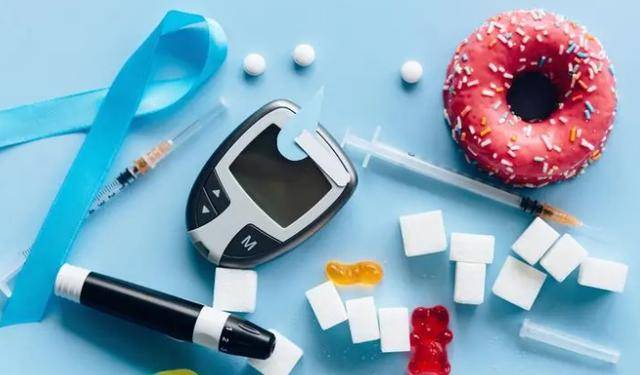In a global context, diabetes has become an increasingly serious health issue. Patients with diabetes have continuously elevated blood sugar levels, which may lead to various severe complications.
Therefore, controlling blood sugar levels has become key to preventing and treating diabetes. However, some foods have extremely high sugar content, known as “blood sugar giants,” and if not controlled in intake, these foods can have adverse effects on blood sugar.
A recent study found that the blood sugar index of a particular food is 6 times higher than that of desserts, prompting doctors to specifically advise against consuming it.
For individuals with high blood sugar, if they exhibit these 4 signs, they need to be vigilant and beware of the disease “deepening”:
1. Weight Loss
When blood sugar exceeds the standard, many individuals experience weight loss, a common trend towards diabetes development where even with high nutrient intake, weight decreases. Pay attention to signals such as good appetite, substantial food intake but no significant weight change, as health may be at risk from noticeable increase in blood sugar values accompanying weight loss.
2. Significant Vision Impairment
Elevated blood sugar concentration in the body, if not controlled, can damage the retinal structure, leading to symptoms and affecting vision health. Clinical studies show that individuals with high blood sugar have a higher risk of glaucoma, cataracts, and dry eye syndrome, causing discomfort, reduced quality of life, and diminished eyesight health.
3. Persistent Body Fatigue
One manifestation of excessively high blood sugar is chronic fatigue even with sufficient rest. Those with diabetes often experience fatigue, mental lethargy, and lower body weakness, despite adequate rest.
4. Frequent Urination
Excessive blood sugar levels in the body lead to filtration of large glucose amounts in the kidneys, excreting the glucose through urine as a protective mechanism. If there is a sudden increase in urination volume regardless of water intake, it may indicate high blood sugar levels.
Identified as blood sugar giants, being 6 times higher than desserts, medical professionals caution against their consumption to avoid potential consequences.
Diabetes and hypertension are generally considered pathological diseases caused by high sugar ingestions. However, experts on modern diabetes and blood sugar have conducted studies indicating that blood sugar giants are not erratic fluctuations caused by sweets but may have a 6-fold increase in the glycemic index of sweet foods.
Aside from avoiding foods high in sugar, individuals with diabetes should also steer clear of fried foods. Consuming high-fat fried foods can elevate cholesterol and triglyceride levels in the blood vessels, leading to hyperlipidemia, and triggering complications if left untreated.
Alcohol is best avoided by individuals with diabetes as it affects the breakdown of liver sugars, raising blood sugar levels and adversely impacting liver and kidney functions, risking severe health threats.
“**Continued in the next message**”


